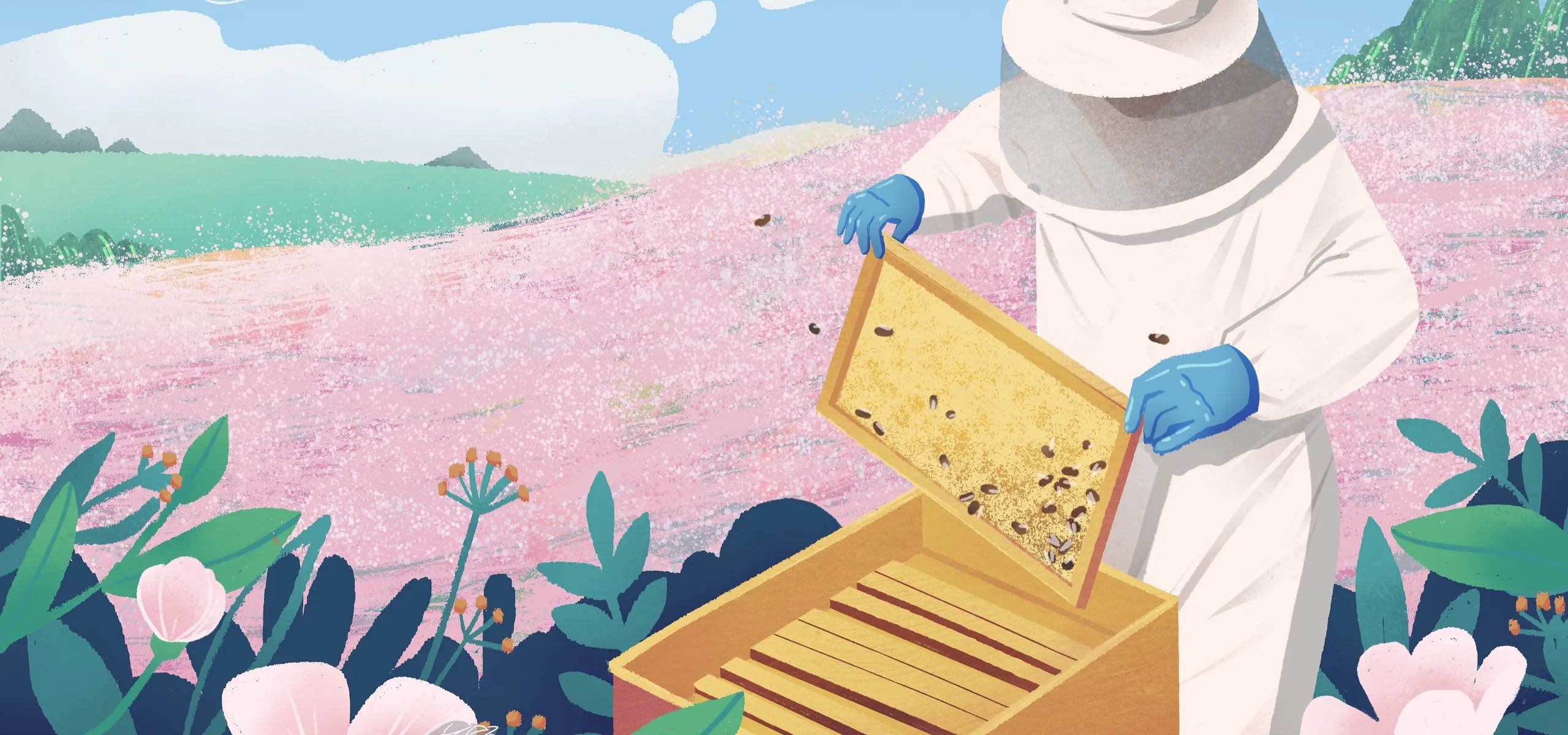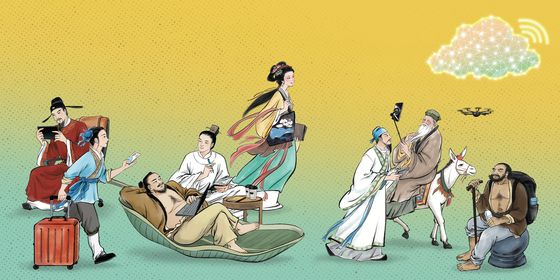As summer begins and cicadas start humming, learn some common insect-related “chengyu”
As summer approaches in China, the annual frustration against incessant mosquitoes and other bugs now out in force is just beginning. But in ancient Chinese literature and poems, insects played all manner of roles, form slanderous mosquitoes to sly flies to self-destructive moths. Many sayings and stories involving insects became four-character chengyu, some still in use today to describe, for example, veteran artists and inexperienced workers. Here are some useful chengyu involving insects, and the stories behind them:
聚蚊成雷 jùwén chéngléi
A swarm of mosquitoes makes a noise like thunder
During the Western Han dynasty (206 BCE — 25 CE), court officials advised Emperor Wu of Han to strengthen the government and weaken regional forces by taking land from his lords and trumping up charges against other members of the royal family.
Later, Liu Sheng (刘胜), known as the King of Zhongshan, and other lords were invited to a feast with the emperor, where Liu shed tears and complained of the unfair treatment and slanderous lies spread by court officials. “A lot of people blowing can make a mountain move, a crowd of mosquitoes can make murmuring turn into a noise like thunder,” Liu declared to the emperor and assembled guests. “I live in Zhongshan, far from the capital where I don’t have many allies in favor of me, which means I get worried when someone constantly speaks ill of me.”
Convinced by his words, the emperor asked officials to stop their rumor-spreading, and instead compromised by letting Liu and the other lords divide their lands among their own family members, to reduce their regional strength. This chengyu has since come to indicate that small problems can cause a great deal of disturbance.
蝉不知雪 chán bù zhī xuě
Cicadas know nothing about snow
Cicadas emerge from the earth in China as early as June, and only survive above the ground as adults for two to six weeks before they die, and the cycle begins again the next summer. This chengyu references the fact that cicadas never live to see the winter months.
Originally found in the Discourse on Salt and Iron (《盐铁论》), a record of political, diplomatic, economic, and cultural debates during the reign of Emperor Wu of Han, written by the official Heng Kuan (恒宽), the full phrase reads “some don’t believe the things they never see, like the cicadas who never know snow.” The phrase is meant to criticize those with limited knowledge or experience.
落笔成蝇 luòbǐ chéngyíng
Turn an ink blot into a fly
While third-century artist Cao Buxing (曹不兴) was decorating a silk screen in the palace of Sun Quan (孙权), ruler of the Wu kingdom, he accidentally dropped his brush, leaving an ink blot on the white silk. After some quick thinking, Cao turned this blotch into a fly to cover the mistake. When the king came to check the work, Cao’s “insect” was so realistic, Sun tried to shoo it away of the screen. This idiom thus came to be used as a compliment for excellent artists.
飞蛾扑火 fēi’é pūhuǒ
A moth flies into flames
First mentioned in the Book of Liang (《梁书》), the idiom was coined by the emperor Gaozu of Liang in the fifth century to persuade Dao Ji (到溉), his respected court official, to retire and let his talented grandson Dao Jin (到荩) take over. The emperor said to Dao Ji: “Don’t burn yourself like a moth flying into the fire.” The phrase was first used to refer to one who makes relentless efforts toward a goal even when there is a risk of death in the process. Later, however, the expression came to refer to a fatal attraction—a warning against temptations like wealth or fame, that could become dangerous.
招蜂引蝶 zhāofēng yǐndié
Attract bees and butterflies
This is a modern day chengyu that originated from a passage in writer Ye Wenling’s 1983 novel A Unique Song (《独特的歌》). Ye’s book took aim at overly flirtatious women and those who dressed to attract the attention from the opposite sex. The phrase is often used to criticize those who behave coquettishly, especially those who are already in a relationship but still appear to flirt with others.












